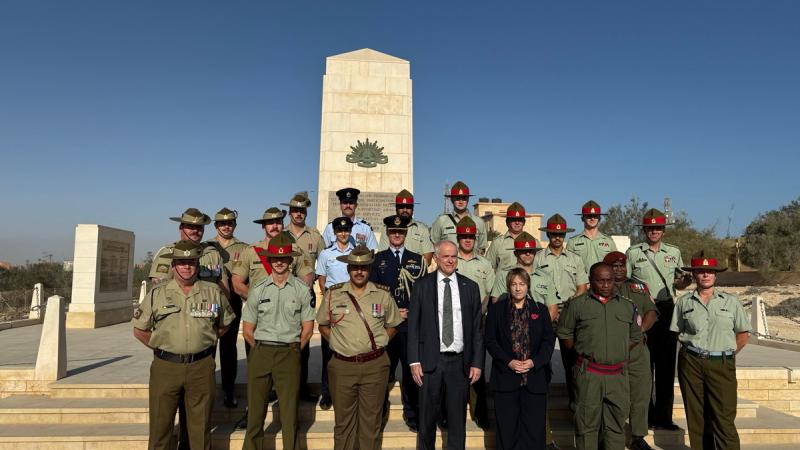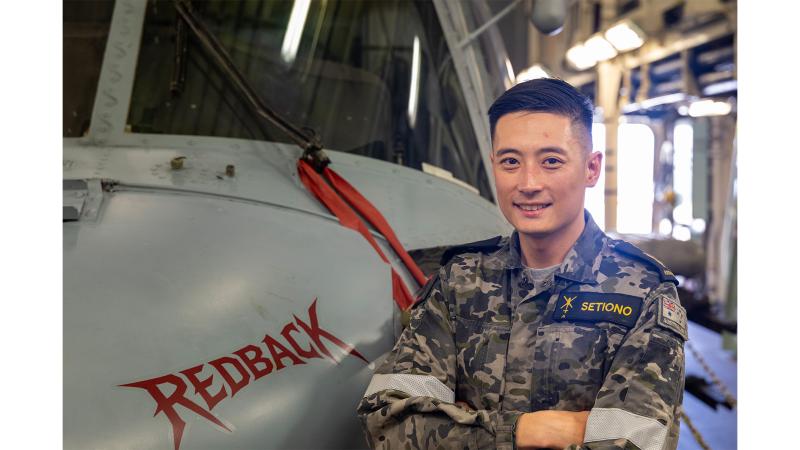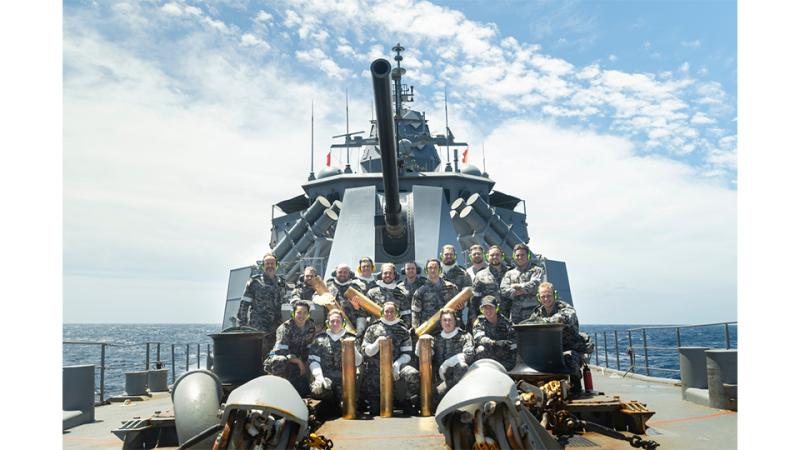3 October 2025
One of the biggest obstacles for young women around the globe aspiring to be part of their national security architecture is the self-evident truth, "you can’t be, what you can’t see".
For this reason it is imperative young and aspiring female Defence and security personnel have the chance to meet and learn from female pioneers who have not only had long and rewarding careers in Defence, but excelled in their chosen fields.
As part of Indo-Pacific Endeavour 25 (IPE25) in Timor-Leste, the topic has been discussed in detail over a three-day gender development program, hosted within the Australian-Timor-Leste Defence Cooperation Program (DCP).
During the program, female Timor-Leste Defense Force (F-FDTL) personnel met with members of the Australian Defence Force Gender Peace and Security team to discuss the history of Timorese women’s participation in peace and security and the role gender plays in military operations – within the framework of United Nations Security Council Resolution 1325 Women, Peace and Security (2000).
The forum culminated with an informative talk led by Commander Indo-Pacific Endeavour Brigadier Jennifer Harris, who assumes command of the Australian Army’s 7th Brigade in Brisbane in six months.
“I have seen first-hand how tough change can be, but it is networks like these that have been critical to my journey. It is why these engagements are particularly special,” Brigadier Harris said.
'I think the F-FDTL is now making women feel confident that they can do the jobs men can do. We enter into the F-FDTL to continue the heroism of the women who died in the jungle'
With women making up 50 per cent of the general population, Brigadier Harris explained it was imperative for successful, future-focused militaries to bolster female representation at all ranks.
“Maximising female participation is not just right, it is a true capability multiplier. As security professionals we appreciate how important it is to understand the human terrain we operate in. It’s key to understanding our operating environment,” Brigadier Harris said.
“Whether you’re on patrol, engaging civil society, supporting disaster response, or planning stabilisation missions, having diverse perspectives ensures we don’t have blind spots. We can truly understand our environment, the power structures, and society dynamics. This can mean the difference between success and failure.”
F-FDTL Air Force’s Private Sigia da Cruz Clara Gonçalves has attended the gender development program forum for two years and said it’s already given her unlimited opportunities.
“I was very excited to visit RAAF Base Darwin where we were showed how to control aircraft in Air Traffic Control. Because of this opportunity, when I came home, my lieutenant recommended me to gain further qualifications to carry out these duties,” Private Gonçalves said.
She said the F-FDTL recognised the contribution women could make in Defence, following in the footsteps of those who served as Fretlin freedom fighters in the jungles of Timor-Leste during the war of independence.
“I think the F-FDTL is now making women feel confident that they can do the jobs men can do. We enter into the F-FDTL to continue the heroism of the women who died in the jungle,” Private Gonçalves said.
However, she said her highlight was meeting an Australian female officer in a senior leadership position.
“It’s an honour for me to talk directly to a brigadier like Brigadier Harris. As a woman, I hope that one day in the F-FDTL, there will be a woman general just like her,” Private Gonçalves said.
Indo-Pacific Endeavour is Australia’s flagship regional engagement activity supporting the Australian Government’s focus on deepening diplomatic and defence partnerships across South-East Asia and the north-east Indian Ocean, and reinforcing Australia’s commitment to a peaceful, stable and prosperous region, founded on openness, respect for sovereignty and adherence to agreed rules and norms.


